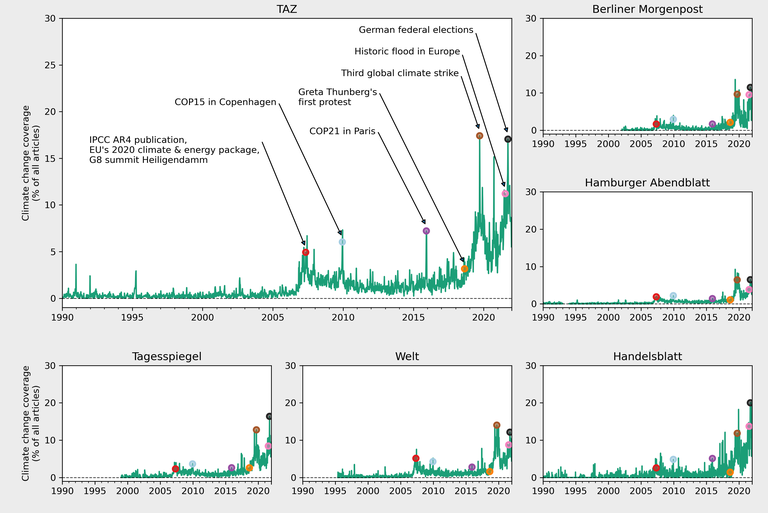Our research group works to better understand the complex, dynamic, and multi-dimensional mechanisms through which climatic conditions affect human well-being and through which climate-related decisions are made, both individually and on a societal level. We analyse these systems through a variety of data-analytic methods, ranging from statistics, econometrics and machine learning to numerical modelling techniques. Using both historic data and projected data about the climate, socio-economic conditions, and development pathways, we are able to provide insight into the motivators of past climate-related phenomena as well as predict future climate-related decisions and societal developments. Furthermore, economic theory and philosophy of public policy are used to study how policies can successfully address the implications of emissions reductions on inequality and well-being on the societal transition. An additional focus is to study effects on well-being in urban transport and sustainable diets.
For more details, see below.
Lab Leader
Cooperations
UC Berkeley, Columbia University, Princeton, Stanford, University of Oxford, University of Sydney, Leiden University, Deakin University, Wageningen University, Centre international de recherche sur l’environnement et le développement (CIRED) Paris, and others
Research Department
Projects
Einstein International Postdoctoral Fellowship (Einstein Foundation Berlin)
Impact of Intensified Weather Extremes on Europe's Economy (ImpactEE; Volkswagen foundation)
What can we learn from the Corona crisis to enhance our societies' resilience to intensified weather extremes? (Volkswagen foundation)
How inequality and identity impact global climate solutions -- and what economics can do (Robert Bosch Foundation)
Research foci
The economic costs of climate change

Assessments of the economic costs of climate change are a vital tool for guiding climate policy and achieving mitigation, but such assessments lack a comprehensive empirical basis. By employing state-of-the-art statistical methods (e.g. from econometrics, pattern recognition, detection/attribution) to historical data, we aim to uncover new links between climate and society with which we can assess the future costs of climate change.
Furthermore, in collaboration with the MCC we are continuing to develop DOSE, an open-access Data-base of Sub-national Economic output. With this strong empirical foundation, we will continue to identify and quantify detailed climate impacts and to translate these into policy relevant insights.
Inequality
Climate change and inequality: facilitating a just transition
We are interested in investigating how climate change affects inequality between and within countries, and which factors contribute to differences in vulnerability. The long-term goal is to understand the links between economic inequalities and climate change and to thereby identify possible pathways to a just transition into a stable climate. This includes, for instance, studying effective gendered climate impacts.
Economic inequality
The impacts of climate change on within-country inequality are not well understood to date. Further, in an economic context of rising wealth inequality within nation states, global solutions to climate change risk rejection by a citizenry distrustful of government. Our research aims at quantifying the climate impacts on inequality across households, using a micro-economic approach. Moreover, it aims to provide an account of which stricter mitigation policies are feasible under persisting inequalities.
Main research question
- Which inequalities impede stringent mitigation policies and how can they be overcome?
The international trade network & climate change

International supply chains interconnect suppliers and consumers throughout the world economy. We use Multi Regional Input Output (MRIO) tables, large data sets capturing interdependencies in the global trade network, to explore these interconnections and their role in propagating climate damages and fostering climate cooperation. A recent focus in on the EU Carbon Border Adjustment Mechanism.
Human behaviour in a warming world
Understanding the effects of the changing climatic conditions and weather extremes on human behaviour is essential for developing informed and effective adaptation and mitigation strategies. In our research, we employ methods from machine learning and econometrics to analyse the unprompted behavioural changes in relation to environmental influences, leveraging for example the feelings that millions of users express on social media platforms.

Sustainable decisions
In this area, our group focuses on the use of artificial intelligence methodologies and use of geospatial data to develop insight into climate-related decisions on a societal level. So far, our work has used tree-based algorithms to better understand the factors that determine the probability of solar panel installation, as well as temporal patterns of recovery from hurricanes. By means of satellite imagery and population data, we have quantified the number of people worldwide without access to infrastructure via roads (Sustainable Development Goal 9.1) and assessed the trade-off between closing these access gaps and achieving ambitious climate change mitigation targets (SDG-13). We have also analysed how the visibility of wind turbines affects property values.

Human well-being
The impacts of climate change affect human well-being in diverse ways. Yet, so far, the focus has largely been on economic outcomes. To grasp the full impacts of climate change on individual well-being, our research will consider a wide range of economic and non-economic indicators, including household income, assets, life satisfaction, health, nutrition, and fertility.
Further, different normative points of view on individual well-being influence environmental policy recommendations. To date, mitigation policy instruments have hardly been examined in a way that appeals to citizens’ diverse values. It is not well understood which factors in the design of carbon prices, congestion charges, meat taxes, and direct regulation is appealing to citizens’ diverse identities and values. Further, health co-benefits of mitigation policies are not sufficiently framed as ‘behavioural-environmental second-best problems’, that is, the joint occurrence of an environmental externality and a behavioural failure.
Main research questions
- How can health co-benefits of environmental policy be represented in economic models?
- How can public support for environmental policy be determined by accounting for citizens’ values and identities?
Climate change in the media
A key factor influencing societal concern about climate change is media coverage such as articles in print and online newspapers or mentions in TV broadcasts. Using state-of-the-art natural language processing techniques (e.g. neural topic modelling) and statistical methods (e.g. from econometrics), we evaluate the prevalence of climate change media coverage, assess possible drivers such as socioeconomic and climatic events and aim to uncover the mechanisms by which media attention is incited.






